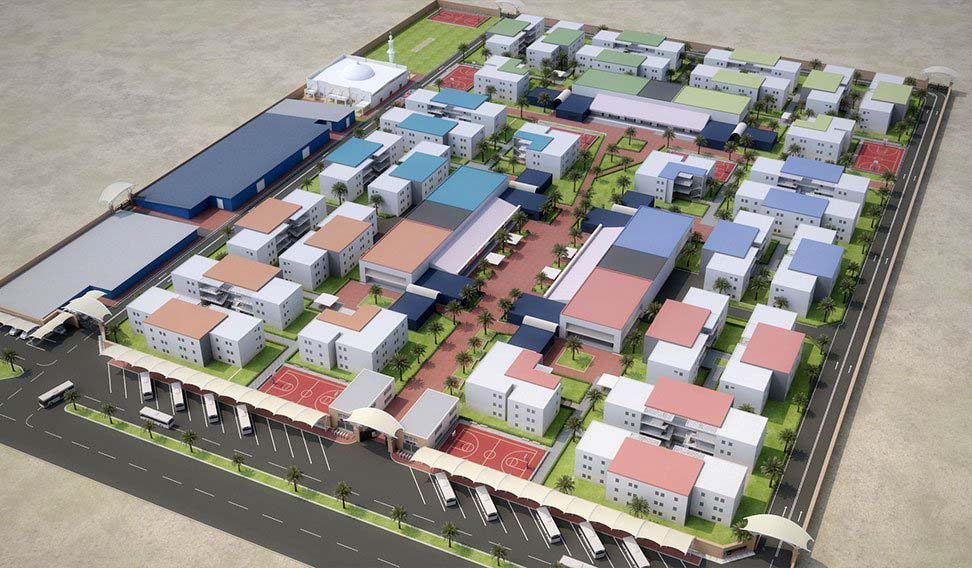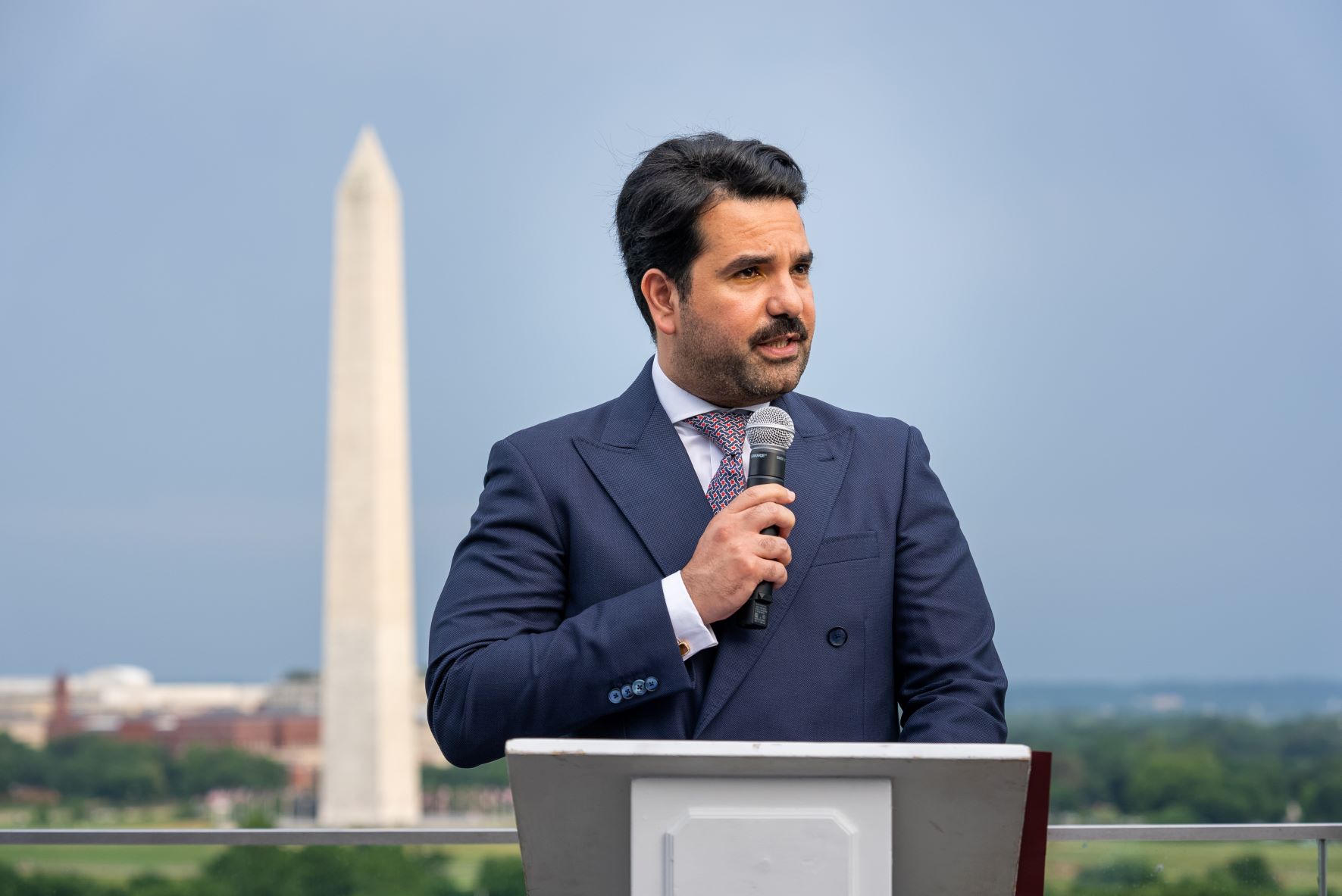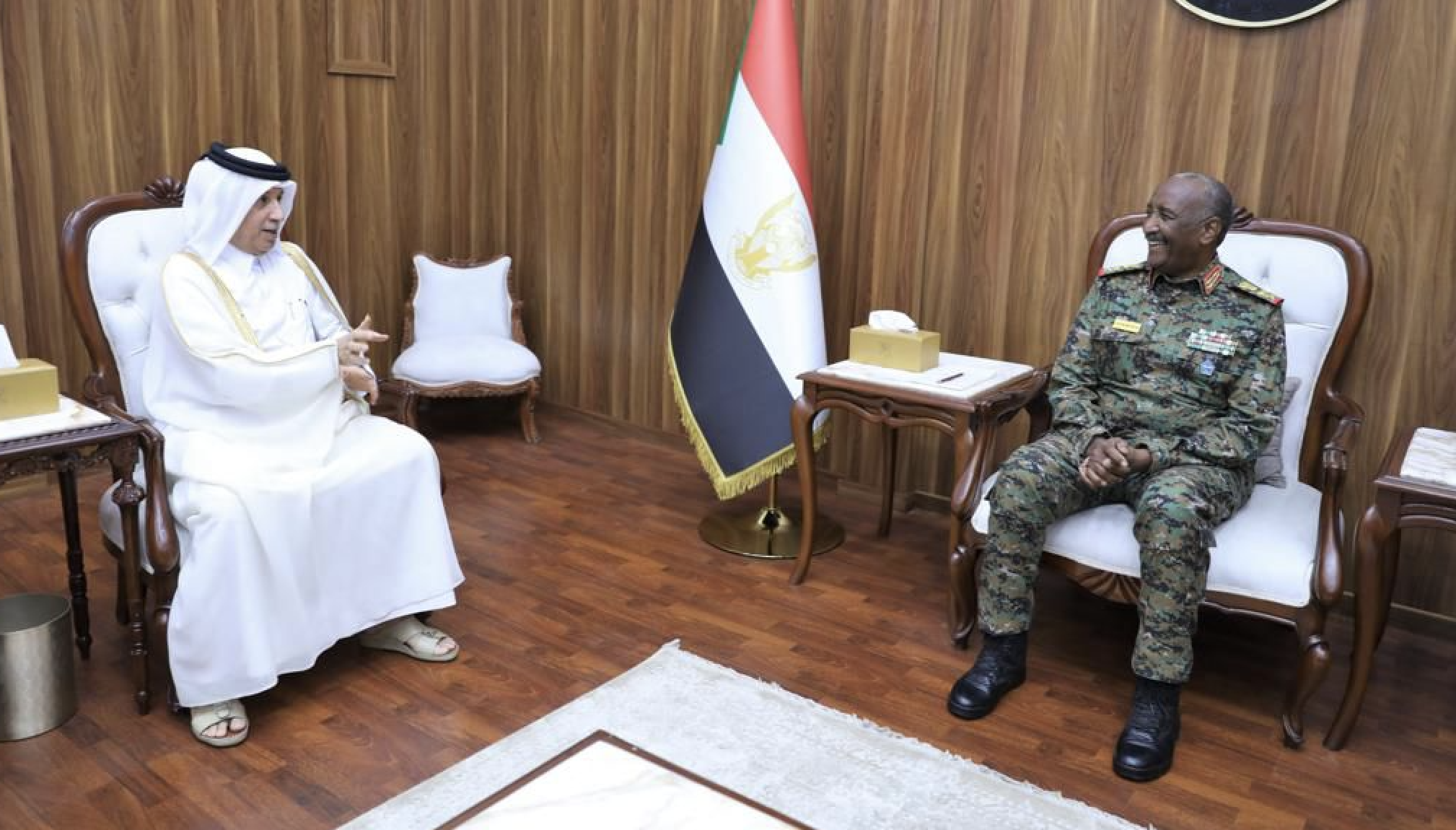
A Qatar-based company has said it plans to start construction on a 6,000-bed labor camp outside Doha this year. The announcement comes as more contractors here are finding that their ability to win business is becoming dependent on providing high-quality workers’ accommodations.
Daruna’s first project will be located on a 150,000-square-meter plot of land in Al Wukair, which is just west of Al Wakrah. Its “village” concept includes retail space, medical clinics and four-story residential buildings clustered in “neighborhoods” around common areas.

“It’s a self-contained village that meets international and Qatari standards for worker housing,” Daruna (our house in Arabic) vice-chairman Joseph LeBaron, who is the former US ambassador to Qatar, told Doha News.
The key to Daruna’s business model is that its plans conform to the Qatar Foundation (QF) workers’ charter, company officials said. The document spells out living and working conditions for the employees of construction firms doing business with the non-profit entity, that go above and beyond what’s required by local laws.
Higher standards
The charter was drafted in response to international criticism of the many crowded, dilapidated and unsanitary labor camps found housing Qatar’s large blue-collar workforce.

In addition to requiring companies to pay for overtime and eschew the use of recruiters who charge worker fees, QF’s charter sets out minimum housing standards. This includes a maximum of four beds per room, allocating six square meters per resident as well as providing recreation areas.
After QF rolled out its workers’ charter, the Supreme Committee for Delivery and Legacy – which is overseeing the construction of Qatar’s World Cup stadiums and training facilities – introduced similar standards.
Qatar’s public works authority, Ashghal, is said to be mulling a workers’ charter of its own and senior Qatar Rail officials warned would-be contractors late last year to review the living conditions of their employees if they want to work on the Doha Metro.
Human rights organizations say that if adequately enforced, these charters could improve the welfare of low-income workers in Qatar, but are no substitute for national standards.
Housing shortage
Local employers have been scrambling to find accommodations for their employees as homebuilders struggle to keep pace with Qatar’s rapidly growing population.

With regards to the country’s blue-collar workforce, last year, Qatar-based Al-Asmakh Real Estate Development estimated that the country needs to recruit another half-million workers to construct the buildings and infrastructure projects that have already been publicly announced.
However, by its calculations, the labor camps planned and under construction can only accommodate 100,000 additional individuals.
As more companies seek higher-quality accommodation for their workers, Daruna is hoping to meet some of the demand. Its business model involves leasing land, constructing buildings on it that can be easily assembled and disassembled, renting it out to contractors in need of housing and contracting out the maintenance, catering and cleaning services.
LeBaron said Daruna has reached an agreement with a landowner and is currently pursuing the relevant licenses. Construction is expected to begin during the second quarter of this year and take 12 to 18 months, he added.
Daruna officials declined to say how much the project costs or what companies interested in renting the rooms would pay.
“It’s going to be extremely competitive,” LeBaron said.

To put the market in context, The Irish Times recently reported on one labor camp in Qatar where a firm charged QR36 (US$9.89) per worker, per day, to house and feed tenants.
The project is being built on speculation without a client under contract, company officials said.
Daruna initially predicted that the first residents would move into its units by the end of 2014, but is now projecting initial occupancy in mid-2106. LeBaron said the delay was due to difficulties in securing appropriate parcels of land.
Separately, the country’s Cabinet yesterday endorsed a decision by the Ministry of Municipality and Urban Planning to form a committee tasked with exploring the supply and demand of worker accommodations. Its responsibilities also include planning temporary and permanent labor camps “to meet the needs of state development programs” while considering rental prices.
Thoughts?







